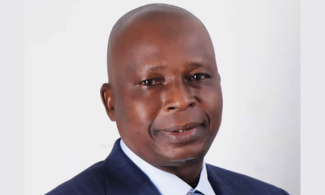
He asserted that Nigeria had been grappling with the debilitating effects of corruption for decades, while stressing that it was a challenge that had permeated various facets of the Nigerian society.
The Attorney-General of the Federation and Minister of Justice, Lateef Fagbemi, SAN, on Tuesday stated that the proposed International Anti-Corruption Court (IACC) would enable the Nigerian government to tackle high-profile cases, powerful individuals and recover stolen assets and property abroad.
He asserted that Nigeria had been grappling with the debilitating effects of corruption for decades, while stressing that it was a challenge that had permeated various facets of the Nigerian society.
Fagbemi made this known while speaking in Abuja during the Human and Environmental Development Agenda (HEDA) 33rd Anti-Corruption Situation Room (ACSR) regional conference in collaboration with the Integrity Initiative International (III).
The AGF who was represented by Yusuf Abdullahi Abdulkadir, Deputy Director public Prosecutions of the Federation, explained that Nigeria had actively engaged with international anti-corruption mechanisms and frameworks.
He said "In recent years, the fight against corruption has taken centre stage in international discourse. Corruption, in all its forms, poses a grave threat to the stability, progress, and development of nations around the world. It undermines trust in governments, weakens institutions, hampers economic growth, and perpetuates social injustice. It is a cancer that knows no boundaries, affecting both developed and developing countries alike.
"To effectively combat corruption on a global scale, we have witnessed the emergence and evolution of various international anti-corruption mechanisms and frameworks. These mechanisms serve as crucial tools in our collective effort to eradicate corruption, and they include conventions such as the United Nations Convention against Corruption (UNCAC) and regional initiatives like the African Union Convention on Preventing and Combating Corruption.
"While these mechanisms have undeniably made significant strides in the battle against corruption, the growing advocacy for the establishment of an International Anti-Corruption Court (IACC) demands our serious consideration. The idea of an IACC represents a paradigm shift in our approach to combating corruption at the international level.
"An IACC would provide a specialized forum for addressing high-level corruption cases that often cross national borders and involve powerful individuals and entities. It would aim to ensure that those responsible for corrupt acts, regardless of their position or nationality, are held accountable for their actions. This would send a powerful message that corruption will not be tolerated anywhere in the world.
"However, we must recognise that establishing an IACC is not without its challenges. Questions of jurisdiction, enforcement, and funding need to be carefully addressed. Moreover, it is essential to strike a balance between international oversight and respecting the sovereignty of individual nations.
"Nigeria, like many other nations, is grappling with the debilitating effects of corruption for decades. It is a challenge that has permeated various facets of Nigerian society, from the public sector to the private sector, and from local communities to the highest echelons of government. The corrosive impact of corruption on Nigeria's development, stability, and prosperity cannot be overstated.
"In response to this pervasive problem, Nigeria has actively engaged with international anti-corruption mechanisms and frameworks. The country is a signatory to the United Nations Convention against Corruption (UNCAC) and has taken significant steps to align its national anti-corruption efforts with the provisions of the UNCAC. The establishment of institutions such as the Independent Corrupt Practices and Other Related Offences Commission (ICPC) and the Economic and Financial Crimes Commission (EFCC) reflects Nigeria's commitment to combating corruption on the domestic front.
"Nigeria, as a country that has been deeply affected by corruption, could benefit significantly from the establishment of an IACC. Such a court could provide a platform to address cases that involve individuals and assets located abroad, often tied to grand corruption schemes that have a devastating impact on Nigeria's development efforts. It could serve as an additional tool to complement and strengthen the nation's domestic anti-corruption efforts.
"In conclusion, Nigeria's experience with corruption underscores the urgency of our discussions today. As we explore the possibility of an International Anti-Corruption Court (IACC), let us remember that Nigeria, like many other nations, stands to benefit from a more robust and coordinated international response to corruption.”